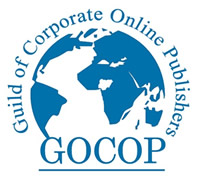Place your adverts here on InfoDig @ low rates; banner ads, sponsored links and guest articles etc. Contact us
To bridge the healthcare gap for individuals living with Sickle Cell Disease in Nigeria, the Sickle Cell Foundation Nigeria (SCFN) and Lagos University Teaching Hospital (LUTH) have forged a strategic partnership aimed at enhancing access to affordable, quality treatment for patients nationwide.
A statement jointly signed by LUTH’s Chief Medical Director,. Prof. W. L. Adeyemo, and the Foundation’s National Director/CEO, Dr. Annette Akinsete, noted that Nigeria carries the world’s largest burden of Sickle Cell Disease, adding that the complexity and costs of treatment have severely limited those who can obtain it.
The statement further highlighted the plight of Nigerian patients who seek Sickle Cell Disease treatment abroad, only to face severe hardship and return home without access to local expertise for crucial follow-up care.
“The establishment of comprehensive care programmes, including newborn screening, penicillin prophylaxis, and Transcranial Doppler screening in children to identify those at risk of stroke, followed by using chronic blood transfusion therapy and the increasing use of hydroxyurea therapy, has improved the proportion of children surviving into adulthood but has not improved the proportion of adults living to older age, especially for the most severely affected.
“Bone marrow transplant using a donor from a family member is an established cure for this disease, first used more than 30 years ago. The transplant is associated with known complications such as infection and graft-versus-host disease (when donor cells can attack the patient), infertility, and even death.
“ However, this procedure has been much improved over the last 20 years to ensure good outcomes and limit complications. It is now an approved therapy for children and adults with severe sickle cell disease.
“Bone marrow transplant is a complex procedure requiring a multidisciplinary team approach and involves treatment and close follow-up for approximately 12 months.
“The complexity and costs have severely limited those who can obtain this treatment, and most have sought this treatment outside Nigeria, which causes severe hardship for patients and families, only to come home with no local expertise for follow-up,” the statement noted.
Concerned about these challenges, the LUTH and SCFN have worked for several years to establish a high-quality, safe bone marrow transplant programme that meets international standards for the cure of sickle cell disease and is accessible to Nigerians at home.
“In preparation for a locally adapted and cost-effective bone marrow transplant programme in Nigeria, a post-transplant clinic was initially established in 2019, a first in sub-Saharan Africa, to provide post-transplant care to patients who had travelled to other countries for bone marrow or stem cell transplants, thereby developing clinical expertise in posttransplant care.
“The programme also established a Stem Cell Processing Laboratory, the first in West Africa. This LUTH/SCFN bone marrow transplant programme consists of a high-level multidisciplinary team that includes paediatric and adult haematologists, including Dr. Seye Akinsete (Team lead) and Drs. Ugonna Fakile, Olufunto Kalejaiye, Yusuf Adelabu, and Professor Edamisan Temiye (the Programme Manager), blood transfusion and stem cell processing lab support (Professor Titi Adeyemo and Dr. Ann Ogbenna), bone marrow-transplant nurses, dieticians, social workers, pharmacists, psychiatrists, anaesthesiologists, nurses at the KidsOR (theatre) and other ancillary personnel.
“The program has been guided by the scientific expertise and leadership of Professor Adetola Kassim of Vanderbilt University Medical Center, who joined the program in 2018. To further strengthen their expertise in the program, Prof Josu de la Fuente from the Imperial College London Healthcare NHS Trust UK joined the team in 2022 as a resource person and assisted with the paediatric aspects of the programme.
“Transplant Nursing has been supported by the Worldwide Network for Blood and Marrow Transplantation (WBMT), which offers both in-person and virtual training at periodic intervals,” it said.
The statement noted that the first set of patients who were admitted last week of August 2024, are currently undergoing bone marrow transplants at the hospital.
“ They received a treatment regimen of exchange blood transfusions, chemotherapy and antiinfective prophylaxis to prepare them for the infusion of bone marrow stem cells that were harvested from family donors, processed and given this week (17th and 19th September 2024).
“Both patients are currently undergoing immediate post-transplant care within the transplant unit at Lagos University Teaching Hospital,” the statement said.
The statement appreciated the leadership of the hospital and the Foundation and other partners for working tirelessly to ensure the success of the programme.
“Importantly, the role of Sickle Cell Foundation Nigeria (SCFN) in this Public Private Partnership has been invaluable – providing administrative and project management oversight under the leadership of the CEO, Dr. Annette Akinsete. The vision and invaluable role of Prof. Olu Akinyanju, OON – Founder of SCFN is also well recognised.
“We want to express our appreciation to patients and families, the Management of the Lagos University Teaching Hospital, especially the Chief Medical Director, Professor Wasiu Lanre Adeyemo, and his predecessors (Prof. Chris Bode and Prof. Akin Osibogun), the Sickle Cell Foundation Nigeria (The CEO, Dr. Annette Akinsete and board of directors under the able leadership of its Chairman – Chief Tunde Afolabi, MFR), Lagos State Government, Chevron/NNPCL, collaborative and technical partners, and other dedicated staff who have been working around the clock to ensure the success of this programme,” it said.
It also expressed gratitude to the Coordinating Minister of Health and Social Welfare, Prof. Muhammed Ali Pate, and the Minister of State for Health, Dr Tunji Alausa for their leadership, support and encouragement throughout the long journey.
















 English (US) ·
English (US) ·